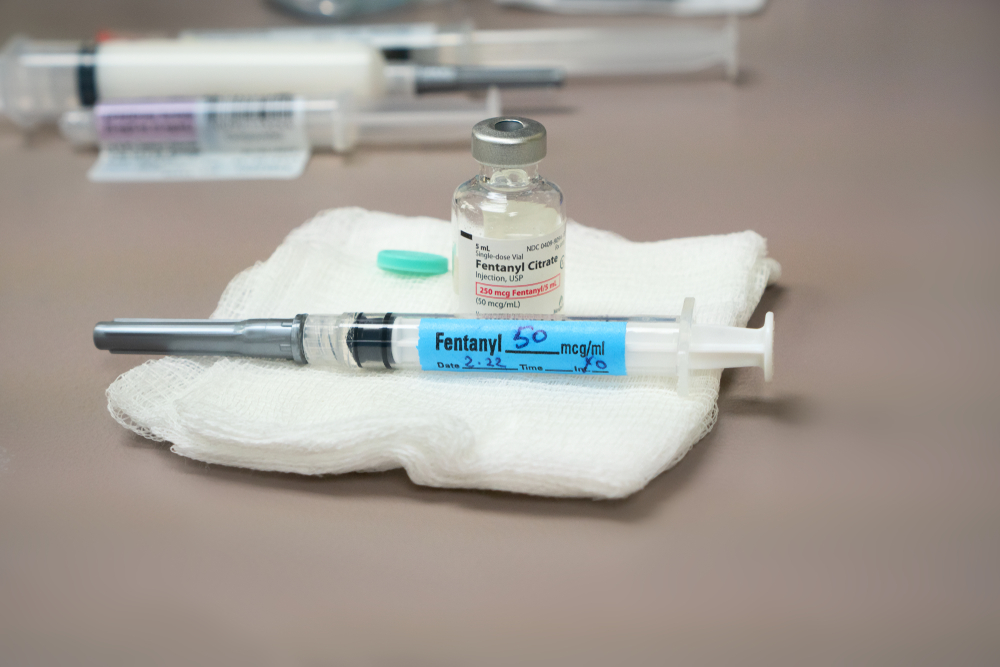Withdrawing From Fentanyl: Signs & Symptoms
Fentanyl is highly addictive and can cause physical and psychological dependence, making withdrawal difficult. Seeking specialized treatment is crucial for a safe and successful recovery, as quitting fentanyl alone can be dangerous and lead to severe health complications and a painful and uncomfortable process.
In this blog, we will explore what fentanyl withdrawal is, its signs and symptoms, and how we manage it at Oasis Recovery Center.
What is Fentanyl?
Fentanyl is a potent synthetic opioid prescribed for severe pain management. However, its addictive properties can lead to dependence and withdrawal symptoms when use stops abruptly. It’s essential to recognize the signs and symptoms of fentanyl withdrawal to seek appropriate treatment promptly.
What is Fentanyl Withdrawal?
Fentanyl withdrawal happens when the body adjusts to the absence of the drug after prolonged use, which can occur from sudden cessation or dosage reduction. The severity and duration of withdrawal symptoms vary, depending on factors such as the method of use, the individual’s overall health, and the length and frequency of use.

Symptoms of Fentanyl Withdrawal
Fentanyl withdrawal symptoms typically occur in two stages.
Acute Withdrawal
Acute withdrawal usually begins within the first 24-48 hours after the last use of the drug. During this stage, the body goes through a period of intense physical symptoms, including:
- Tremors
- Diarrhea
- Dizziness
- Sweating
- Nausea
- Dilated pupils
- Vomiting
- Runny nose
- Abdominal cramps
- Rapid heartbeat
- Sleepiness
- Chills and goosebumps
- High blood pressure
- Muscle aches and pains
- Increased breathing rate
Post-Acute Withdrawal
Post-acute withdrawal can last several weeks or months after the acute withdrawal period. During this stage, the brain and body are still recovering from the effects of fentanyl use, experiencing psychological symptoms such as:
- Anxiety
- Irritability
- Insomnia
- Depression
- Confusion
- Restlessness
- Cravings
- Poor concentration

Timeline Of Fentanyl Withdrawal Symptoms
The timeline of fentanyl withdrawal symptoms can vary depending on various factors. These include the duration and severity of fentanyl use and individual differences in metabolism and physiology. However, in general, the following timeline is typical:
- Early symptoms – Within 2-4 hours after the last dose, a person may experience anxiety, restlessness, and insomnia.
- Peak symptoms – The peak of fentanyl withdrawal symptoms usually occurs within 24-36 hours after the last dose.
- Long-Term symptoms – After the peak of symptoms, physical symptoms may gradually improve over the next several days, while psychological symptoms may persist for weeks or months. Long-term include the inability to feel pleasure, self-harm, outbursts of anger, and more.
Pink Cloud Syndrome After Withdrawal
Pink cloud syndrome, also known as pink clouding or the honeymoon phase, is characterized by intense feelings of exhilaration and euphoria experienced by a person who is delighted with their recovery. It is often characterized by feelings of accomplishment and optimism about the future and a sense of detachment from the negative aspects of addiction. However, it’s important to note that the pink cloud phase is often temporary, and individuals may experience emotional lows or setbacks later in their recovery journey.

Treating Fentanyl Addiction & Withdrawal Symptoms
Seeking specialized treatment for fentanyl withdrawal is crucial for a safe and successful recovery, as attempting to withdraw from fentanyl without professional medical care can be life-threatening. However, with proper treatment and support, it is possible to manage symptoms and overcome addiction.
Professional treatment centers offer individualized care tailored to each person’s unique needs. With medical supervision, healthcare professionals can oversee and assist in the physically and emotionally challenging withdrawal process, ensuring a safe and effective recovery. Support and therapy can also help individuals address underlying issues and develop coping mechanisms to prevent relapse.
Additionally, medication-assisted treatment, which includes medications such as methadone and buprenorphine, can help ease withdrawal symptoms and reduce cravings, making the withdrawal process more manageable.
Risks of Withdrawal Without Medical Supervision
Without medical supervision, the risk of withdrawal symptoms and complications increases significantly. Some of the potential risks include:
- Increased risk of relapse: Without professional treatment and support, the risk of relapse is higher. Many people find that they cannot manage withdrawal symptoms and cravings independently, leading them to return to using fentanyl.
- Dehydration: Symptoms like nausea, vomiting, and diarrhea are common during fentanyl withdrawal, which can lead to dehydration. Severe dehydration can require medical attention.
- Seizures: Seizures can occur during fentanyl withdrawal, which can be life-threatening if not appropriately managed.
- Depression and anxiety: Fentanyl withdrawal can cause severe psychological and emotional distress. Without adequate support and therapy, individuals may develop depression and anxiety, leading to relapse or other mental health issues.
Are you seeking information about “Fentanyl-Laced Weed: Should You be Worried?” Look no further than our comprehensive guide, designed to give you the necessary answers.
Finding Relief: Overcoming Fentanyl Withdrawal
Oasis Recovery Center offers medically supervised fentanyl withdrawal therapy with tailor-made MAT programs, considering each client’s medical history and drug use when creating a treatment plan. We aim to help patients overcome fentanyl withdrawal symptoms and regain a healthy lifestyle. Contact us to learn more about our programs, treatment centers, and what could work for you.









